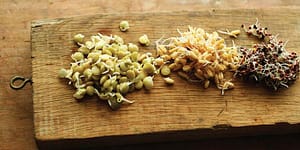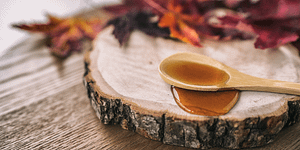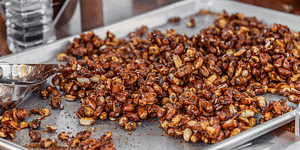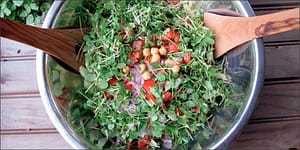Reaching Grill Greatness: The Best Meat Temperatures

Have plans to fire up the grill this summer? Want to impress everyone with your grilling skills? Take some advice from the gourmet butcher himself, Cole Ward, and make sure your meat is at the right temperature before you serve it to family and friends. Ward has the proper cooking temperatures for meat ranging from beef, lamb, and veal, to poultry, fish, and pork.
The following is an excerpt from The Gourmet Butcher’s Guide to Meat by Cole Ward. It has been adapted for the web.
Storing meat is fine, but at some point you’ll probably want to eat it (just a thought). I get lots of questions about cooking temperatures for meat. Kinda matters, ’cause we’ve all suffered through one of those disastrous dinners involving steak cooked to a crisp, or a roast bleeding onto the table. The USDA has developed guidelines for cooking temperatures of the various meats, and I urge you to consult these.
Having said that, let me tell you that I don’t follow USDA guidelines for cooking temperatures except for poultry, eggs, and ground meats whose source I don’t know. I feel comfortable with this because I know the provenance of every piece of meat I consume: where it was raised, how it was raised, when and how it was slaughtered, and so on. I’m comfortable cooking it as I like it. This is probably an example of “don’t do as I do.”
Beef, Lamb, & Veal
For beef, lamb, and veal, the USDA recommends an internal temperature of 145°F (63°C). I prefer rare at 125 to 130°F (52–55°C).
If you prefer medium rare, cook to 130 to 140°F (55–60°C).
For medium well, 150 to 160°F (66–71°C).
And if you prefer your meat well done, I can’t help you, because I would never order or cook meat well done. My preference is rare, and it can be difficult to convince a restaurant— hampered as they are by health inspection regulations—to serve you a truly rare (“blue”) steak.
If you are cooking burger from ground muscle meat that you are certain comes from a healthy local source, I recommend 140 to 145°F (60–63°C). For any other (unknown) source, 160°F (71°C) is safest and is the temperature recommended by the USDA.
Poultry & Fish
All poultry should be cooked to 165°F (74°C), and fish to at least 145°F (63°C).
Pork
I get a lot of questions about pork. Specifically, the correct internal temperature to cook it to before serving. I’m vigilant about buying only the best meat from a properly raised animal (which is why I like to know about the farmer behind the product), so an internal temperature of 145°F (63°C) is what I recommend. This gives a tender, delicious result.
However, most people prefer to cook pork to a higher internal temperature of 155°F (68°C) . . . it provides peace of mind. And I agree. If you’re uncertain about the quality of the meat, err on the cautious side.
I can’t tell you about crocodile. The Vermont crocodile is endangered, and hunters can no longer purchase croc permits from the state.
Reheating Red Meats
Here’s how to reheat red meats like standing rib, steak, eye round, or flank steak so you don’t lose taste or quality. The assumption for these instructions is that the meat was cooked only to the rare stage at first serving.
For oven reheating, remember these mantras:
- The larger the piece of meat, the lower the heat and the longer the time.
- The smaller the piece of meat, the higher the heat and the shorter the time.
For a 2-pound piece of red meat, preheat the oven to 350°F (177°C), put the meat into an ovenproof dish, cover with aluminum foil, and place in the oven. After 10 minutes, flip the meat and give it another 10 minutes, removing the foil for the last 5. This will give you a medium-rare result.
Reheating on the stovetop is actually best for smaller pieces of meat. Place a pan on the burner, bring to high heat, and add a tablespoon of butter or oil. Then “fry” the meat for about 2 to 5 minutes a side (depending on thickness). For a flavorful jus, deglaze with 1/2 cup red or white wine and reduce by half. Then turn the heat off, add 2 tablespoons of very cold butter, and swirl in. You’ll love me for this.
Microwave reheating: Don’t do it (unless you love rubber).
Recommended Reads
Recent Articles
What’s so great about oyster mushrooms? First, you can add them to the list of foods that can be grown indoors! They are tasty, easy to grow, multiply fast, and they love a variety of substrates, making oyster mushrooms the premium choice. The following is an excerpt from Fresh Food from Small Spaces by R. J.…
Read MoreCraving something sweet? These delicious maple roasted nuts are the perfect treat to help you push through those end-of-winter blues. The following is an excerpt from Full Moon Feast by Jessica Prentice. It has been adapted for the web. The Magic of Maple: A Rich History Following the Hunger Moon, just before the first thaw…
Read MoreDoes the cold weather have you dreaming about fresh greens and colorful salad? Grow and harvest sprouts indoors to make those dreams a reality! Follow this quick start guide to year-round greens for fresh salad greens in just a couple of weeks! The following is an excerpt from Year-Round Indoor Salad Gardening by Peter Burke. It…
Read More









